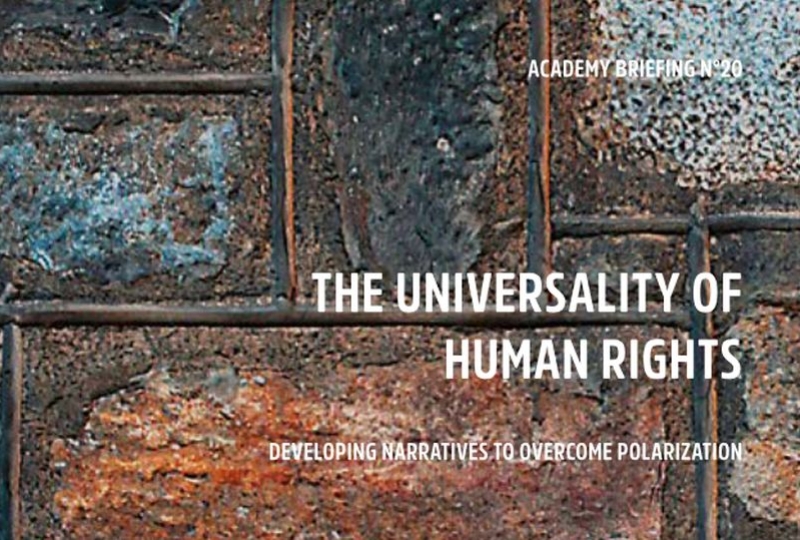Ours is a time of major geopolitical shifts. Human rights, a ‘truth’ that for better or for worse seemed undisputable in the decades following the end of the Cold War, is increasingly coming under pressure.
From major emerging global powers asserting the legitimacy of their ‘own version’ of human rights to the age-old attempts to limit or exclude human rights from applying to certain issues or certain people, passing by the populistic narratives denouncing human rights as a snare by global elites, human rights face unprecedented rhetoric challenges today.
‘In this context, and if it is to remain relevant, human rights universality cannot be taken for granted. The values that underlie rights – equal human dignity most of all – must be endorsed as a political choice rather than asserted as dogma’ explains Pedro Martínez Esponda.
‘Put simply: in times of intense questioning, human rights need to be able to actively persuade. Thus, it is of utmost importance to reflect on the narratives with which human rights are advocated for in international spaces such as the UN human rights system and imagine new, more compelling narratives that are capable of bridging the different gaps that underlie the politics of human rights: North/South, individual/collective, as well as civil and political rights/economic, social and cultural rights. This briefing constitutes an attempt at this’ he adds.







